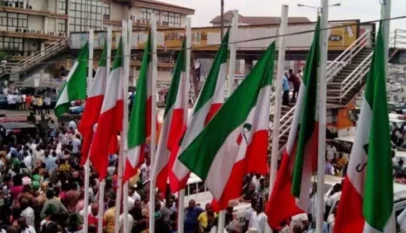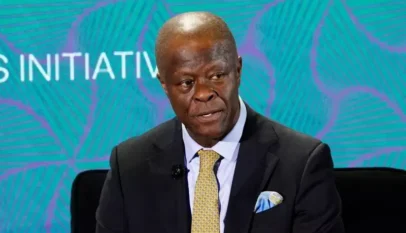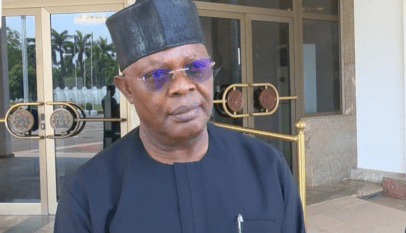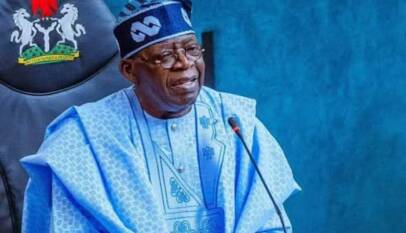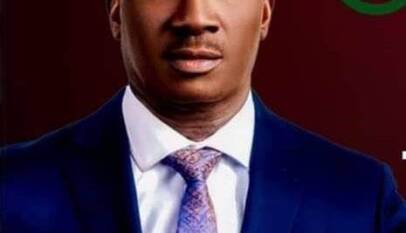
The End Bad Governance protest that swept across Nigeria early in August assumed a frightening dimension in the northern part of the country with widespread violence and unmitigated looting and destruction of public and private assets reported in nearly all 19 states of the region suffered varying degrees of carnage.
Despite Nigeria being ruled by northern leaders, Hausa/Fulani land’s vast lands have remained mostly underdeveloped. The region boasts the highest number of illiterates in the country, with the Almajiris culture unchanged and growing. This is despite the region occupying the highest political office in the country for 41 of its 64 years of existence (nearly 66%).
Compared to the South, the North has had eight presidents. Interestingly, their leaders have had more joy in the saddle of leadership, with Gen. Yakubu Gowon spending a record nine years unbroken in the golden years of Nigeria’s nationhood.
The only non-northern Nigerian with that enviable record is Olusegun Obasanjo, whose two stints (three (military) and eight (democratic)) were mostly foisted on the South by northern oligarchs and hegemony.
Yet, there is pervasive poverty, famine, illiteracy, and drug abuse in that part of the country. That has made the region a breeding ground for religious extremism and banditry. Unscrupulous leaders continue to weaponise illiteracy and use the youths to unleash mayhem for political and pecuniary gains.
Unduly favoured in sharing the ‘national cake,’ governors and northern politicians have failed to elevate the living standards of their citizens. The Governor of Kano State, Abba Yusuf, openly supported the protest until the monster got out of control, leading to multibillion-naira destruction that has set the state back a few years.
Banditry, religious extremism, drug abuse, and terrorism have crippled food production and taken away the sources of livelihood of a great percentage of the people in the region. The north’s basic contribution to the well-being of Nigeria has been its farm produce, which helps to keep prices down. The agricultural states of Plateau, Benue, Niger, Nasarawa, and several other states are in the throes of farmers and herders’ clashes on the one hand and Christian and Muslim/Christian bloodletting on the other.
The above have negatively impacted the purchasing power of the people, whose economic woes were compounded by the various monetary policies adopted by Bola Ahmed Tinubu’s administration last year.
The removal of petroleum subsidies is a huge blow to bandits in the region and their sponsors. With a length of 1,000 miles mostly unmanned border with just the Niger Republic alone, goods, including highly subsidized petrol, diesel, and other petroleum products, are traded unhindered across the bother. Removing subsidies meant that the smuggling of petroleum products was not as lucrative as in the past.
It was not surprising when the prices of those products went up in Niger, Cameroon, and Benin, among other neighbouring countries. Curiously, before Nigerians took up the gauntlet, there had been protests against President Tinubu by citizens of those countries. It was the first time that citizens of another country would protest the policies of another government.
While the northern businessmen and smugglers were rueing the effect of subsidy removal, the Federal Government clamped down on Bureau de Change operators and forex speculators. Operators like Aboki Fx and others were fingered by the Buhari Administration for being behind arbitrarily dollar price-fixing to the detriment of the Naira.
A financial expert said, “Over 90% of foreign exchange traders are from the north, and President Tinubu’s decision to clamp down on those operators was seen as another attack on northern interests.”
Prominent Northerners, including Senator Ali Ndume and the Arewa Consultative Forum, among others, have expressed regret in supporting the APC and Tinubu in the March 2023 Presidential Election. One of the growing opponents of the former Lagos State Governor had threatened to pay the president’s ‘disloyalty and ingratitude to the north’ in the next election.
“From Obasanjo to Jonathan, past Nigerian presidents have ruled the country according to the wishes of Northern oligarchs. Benefits ranging from oil wells, the monopoly in the commodity market, employment in the civil services, and others are conceded to the few monolithic businessmen and interests in the north for them to sustain their seats,” a source said.
Naija Daily News noted that most former northern presidents and leaders own oil blocs and juicy contracts that benefit them at the expense of Nigeria and Nigerians. Former President Atiku Abubakar’s Intel Services enjoyed a monopoly in the collection of maritime and cabotage levies on behalf of the Federal Government for decades.
Africa’s richest man, Aliko Dangote, enjoys a stranglehold cartel in the sugar and cement business in Nigeria. He had successfully seen off competitors through a cutthroat business model. He has been involved in a running battle with Ibeto Cement and BUA in recent times as his company tightens the noose on the market.
In the civil services, northern candidates are given undue advantages, with most of the political and traditional leaders’ children taking up available employment opportunities. Senator Ndume’s and other northerners’ outburst against Tinubu’s relocation of the Central Bank of Nigeria (CBN) unit to Lagos betrayed their desperation to keep their family members in the cosy environment and with their families in the Federal Capital Territory.
A source said, “The debate and controversy were quite unnecessary; Lagos is the 19th best city in the world and has the largest stock exchange, the Nigeria Stock Exchange. The CBN needs to be in the proximity of the NSE and also in the city where about 90% of the bank’s headquarters are located.”
A northerner former CBN Governor and current Emir of Kano, Sanusi Lamido, who as the head of the apex bank started the relocation years ago, still supports it. However, it was discovered that Ndume’s daughter worked in one of the units that would be moved to Lagos. As a result, the senator felt it was better for the unit to remain in Abuja, where his family and his daughter live with her husband, even if it is against Nigeria’s interests.
But perhaps the greatest northern angst towards the current administration is by billionaire Aliko Dangote. The cement and sugar mogul has often been accused of using unwholesome tactics to stifle his competitors. Before his recent feud with Alhaji Abdul Samad Rabiu, Chairman of BUA Cement, Dangote was embroiled in a messy fight with Femi Otedola’s African Petroleum (now Forte Oil).
Recently, the Kano-born billionaire raised the alarm over the perceived unfriendly policy by the current administration to frustrate his refinery, reputed to be the largest single-train refinery in the world. He accused the government of starving the refinery of crude oil needed to operate. Still, some analysts say it is a ploy to gain public sympathy and blackmail the FG to encourage his quest to dominate the downstream sector.
Meanwhile, amidst the ENDBADGOVERNANCE Protests that have shaken the nation, Governor Bala Mohammed of Bauchi State earlier this week unfurled the opposition Peoples Democratic Party (PDP) 2027 presidential quest. The move has further fuelled speculations by the Nigerian government that the opposition was fuelling the protests.
The protests that raged across the country and the carnage in the north, although blamed on the current government’s policies, have shown the failure and calculated suppression of some sections of the country by the leaders.
An uneasy calm has taken over the country at the timing of putting the final stop to this article, but what is yet unseen is if Nigerian leaders and President Tinubu would now truly move to develop the country or continue to throw crumbs and make insincere promises to Nigerians.
The undeniable fact is that the monsters in the north and south of Nigeria are growing bigger and might soon become too scary to tame.

